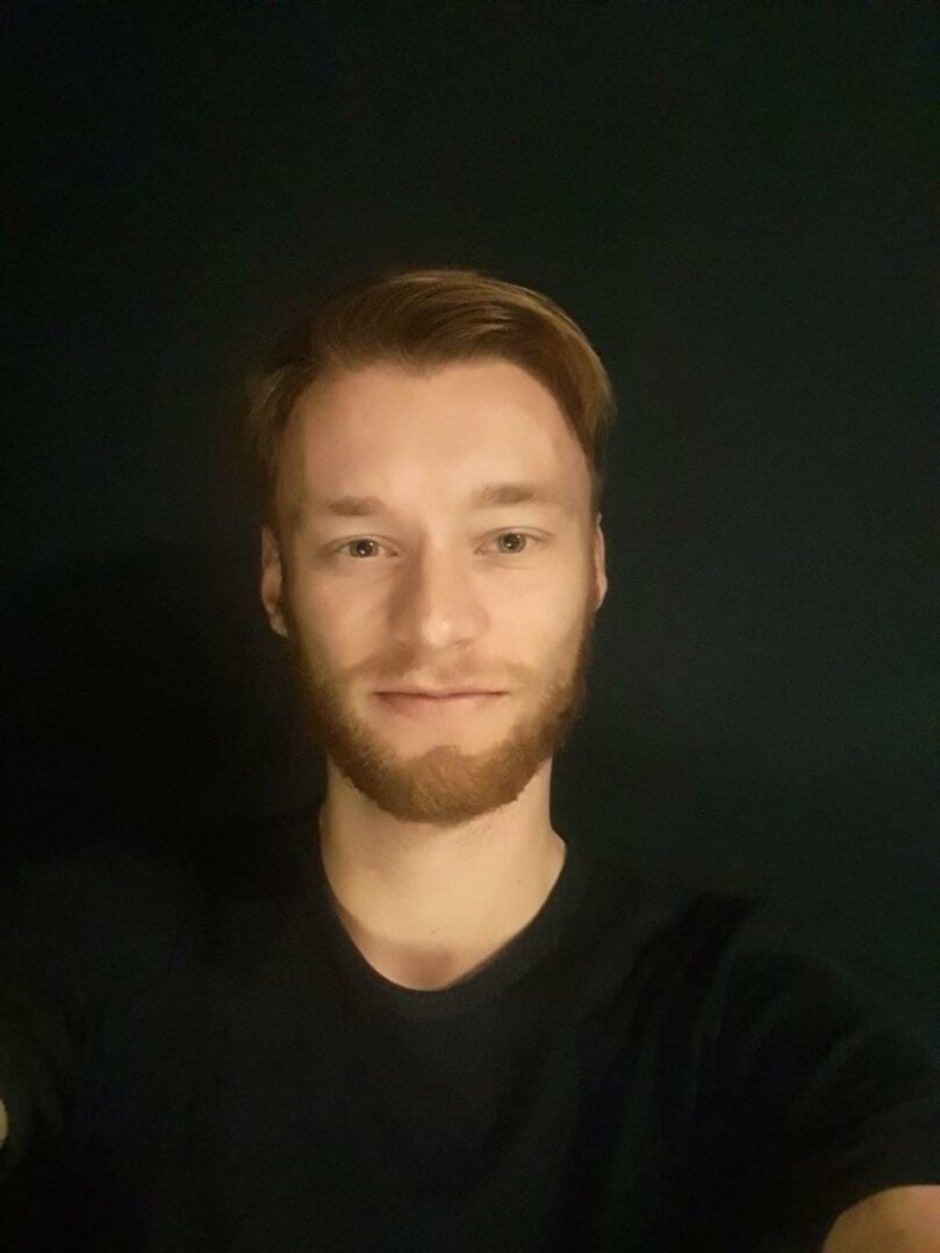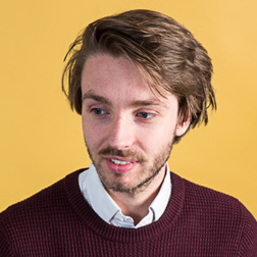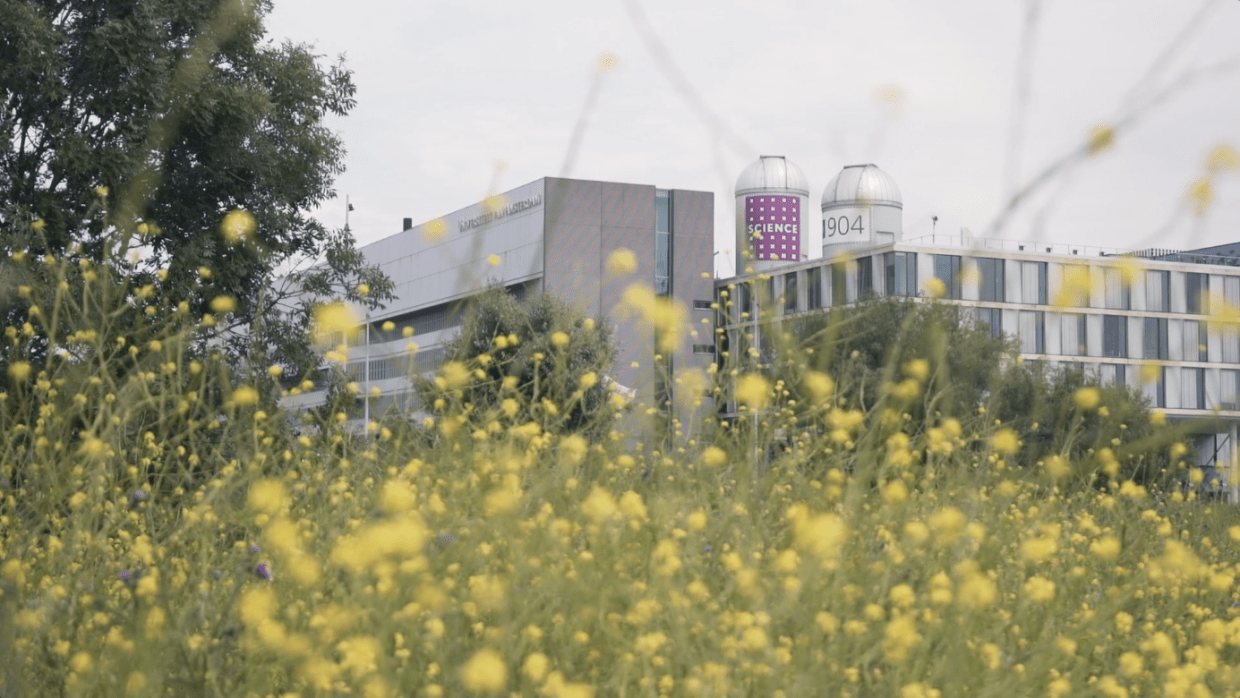
With new science course Science & Design, UvA moves towards technology
In 2023 the first UvA students should be able to start a new study with the working title Science & Design. With this, the university is trying to attract students with an interest in design thinking and technology. Students and staff members of the science faculty have their reservations, but nevertheless view it positively.
It won't be a technical program, but according to associate professor of sustainable chemistry and 'quartermaster Science & Design' Chris Slootweg, the university is moving in that direction to some extent with the new Science & Design program. 'A technical study such as Industrial Design is based on the state of the art in technology and focuses on its optimal application. I prefer to talk about a natural science design study,' he says. We really want to set new developments in motion, for instance in the field of energy and sustainability. But in doing so, we also immediately think about how it should be applied.'

'There is a huge demand for people who can do this in the Amsterdam region,' continues Slootweg. 'When we spoke to a large employer, he said that project management and design thinking are the first two things he teaches new employees. Those are exactly the things that are reflected throughout our curriculum.'
Not enough information
Anyone who hears the enthusiasm with which Slootweg talks about the new Science & Design program can hardly believe that its creation led to a minor uproar on the science faculty this spring. The student council of the science faculty tried to use the Open Government Act (Wob) to receive documents about the establishment of the study. A tough tool, says chemistry student and student council president Koen Oostinga. 'But we felt we simply had too little information to have a proper discussion,' he says.

'We also understand that this is a study under construction, and that the curriculum is not yet finished,' he says. But the starting note we received was very unclear. The document only gave a limited indication of why the science faculty needed this course, and whether there was any enthusiasm for it. We felt like we weren't getting all the information.
Abuse of rights
The UvA rejected the Wob request for abuse of rights. 'It is clear from your request that your intention was not to make the requested documents public, as intended by the Government Information (Public Access) Act, but only to come into possession of these documents yourself in order to use them in a participation procedure,' explains the university's reasoning.
'We were mainly concerned with the information,' says Oostinga. We felt that as a council we could not form an informed opinion. After the Wob request was rejected, the council entered into talks with the faculty board again. We have always remained in contact with the board to obtain the information.

The council's concerns have been 'partially' addressed, Oostinga says. But especially the question whether there is enthusiasm and how the flow to the masters, has not been answered as far as the student council is concerned. 'But we are more positive about it now.'
Teachers and space
The works council, the representation of the faculty's employees, also recently gave a positive advice. Richard de Boer, lecturer in life sciences and member of the works council, says that 'they're not there yet, but there's no reason to lie down in front of them now'. 'In terms of content, we think it's an interesting study,' he says. 'We have no concerns about the usefulness of the course, but we do have concerns about its practical embedding.'
What the curriculum will look like is not yet entirely clear, Slootweg says, but education will be organized around four major themes:
- High-tech design materials
- Sustainable energy & circular raw materials
- Design with living building blocks
- Information sciences, digital modeling & simulation
In the first year, students take the courses of all themes, in the second year they choose two themes and in the third year one theme. As an example of a subject Slootweg mentions the subject 'hydrogen'. 'This course looks at the role of hydrogen as a fuel, hydrogen in our bodies, you name it. We combine all disciplines.'
'The study would like to attract 125 students per year. Will that be at the expense of other UvA studies? We don't think the new program should compete with UvA studies,' he says. 'Moreover, there is the question of where those 125 students should take lectures.' The science faculty has been bursting at the seams for a few years now. Soon the Lab42 will be completed at Science Park, especially for students and teachers of information sciences. 'But that, too, is already fully planned,' De Boer knows. The planning of this education will be complicated.
Sector plans
Slootweg knows the objections of the co-determination body. He's not really worried about faculty. 'In recent years, thanks to the millions from the STEM sector plan, the faculty has hired many researchers who still have room for teaching,' he says. 'When recruiting these researchers, we considered the creation of this study.'
Moreover, with the recently opened Demonstrator Lab Science Park, Slootweg says there is already a space available for students who will take the course. 'We want to start working from a Makerspace, where students will work on a project basis and with Design Thinking methods. This is a study in which we want to give space to innovative education. We do need to realize more space, but that is work in progress.'
The UvA has been in the process of establishing Science & Design since 2018. At the time, the university was still talking about 'a technical study', but the new program is not going to be that. The goal that was mentioned at the time - 'transforming fundamental knowledge into design or engineering applications' - is still there.
Just before the UvA came up with the plan, the Vrije Universiteit and the University of Twente jointly set up the technical study Mechanical Engineering. That study attracts about sixty first-year students a year.
That is the entire course at this time. These weeks, the project group is putting the finishing touches to the file for the efficiency test, which examines whether there is a demand on the labor market for graduates in this field. This will be followed by the accreditation procedure. The NVAO looks at the coherence of the curriculum, the learning outcomes, and whether lecturers are capable of providing the education.
The student council and works council are also allowed to pass judgment on the course. 'In principle, it is intended that this council will handle this,' says student council member Oostinga. That would mean that the councils will vote on the study before the summer. What comes out of that is still uncertain. 'We are positive about it, but there are still a few concerns to be addressed.'

